Ancient World Questions. Uncover Historical Insights and Biblical Connections
Delve into our curated list of questions about the ancient world, exploring historical insights and their biblical connections. Perfect for history buffs and Bible scholars alike. Discover the answers today!
How did the Ancient Greeks and Romans view education and the role of philosophers?
Education and the role of philosophers held significant importance in the ancient Greek and Roman societies. In ancient Greece, education was highly valued, and it aimed to develop well-rounded individuals. Greek philosophers, such as Socrates, Plato...
What were the major achievements of the ancient Greeks in art and architecture?
The ancient Greeks made remarkable achievements in art and architecture, leaving a lasting impact on Western civilization. Some of their major accomplishments include: Sculpture: Greek sculpture reached unparalleled heights, with an emphasis on ideal...
How did ancient Egyptians mummify their dead?
Ancient Egyptians had a complex and elaborate process of mummification to preserve the bodies of the deceased for the afterlife. The process involved several steps: Removal of organs: The embalmers would first remove the internal organs, except for t...
What were the main causes of the fall of the Roman Empire?
The fall of the Roman Empire was a complex event with multiple contributing factors. Some of the main causes include: Internal Decay and Political Instability: The empire faced a decline in effective leadership, political instability, and corruption ...
When did Jerusalem become the Capital of Israel?
Around 1000 BC David became king over Israel and conquered the Jebusites and stormed their fortress on Mount Zion (1 Sam. 5:5-9). Jerusalem became his home and the capital of his kingdom. He brought the Ark of the Covenant to the city and danced befo...
Where did the Israelites Cross the Red Sea?
According to the biblical account in Exodus 14, the Israelites crossed the Red Sea during their escape from Egypt. When they reached the shores of the sea, Moses stretched out his hand, and God caused a strong east wind to blow all night, parting the...
Where was Mesopotamia?
Mesopotamia, mentioned in the Bible, refers to an ancient region located in present-day Iraq and parts of Syria and Turkey. The term "Mesopotamia" means "land between rivers" in Greek, as the region is situated between the Tigris and Euphrates rivers...
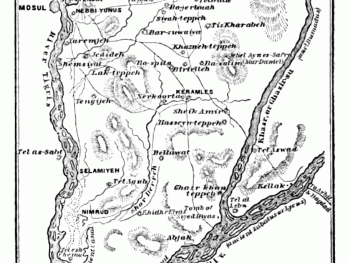
Where was the land of Assyria located?
The land of ancient Assyria was located in the far north of the Tigris river near modern Mosul. In their earliest history Assyria was a small territory on the left bank of the northern Tigris River. Over time their borders extended to the area be...
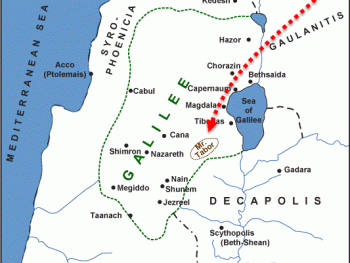
Where was the location of the Transfiguration?
Matthew 17:1 – After six days, Jesus took with him Peter, James, and John his brother, and brought them up into a high mountain by themselves. In the 4th century AD a tradition was established that Mount Tabor was the scene of the transfiguration a...
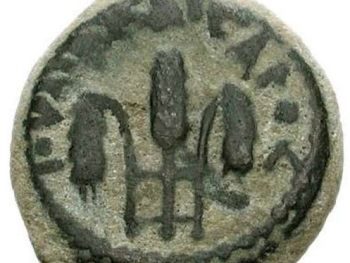
Who Appointed Pontius Pilate Procurator of Judea?
Only the Jewish historian Josephus provides us with what little information is known about Pilate’s life before 26 A.D. when Tiberius Caesar appointed him procurator of Judea. The sketchy information suggests that Pilate was probably an Italian bor...
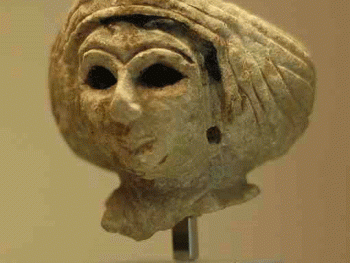
Who Was Delilah?
The Bible mentions Delilah as a woman of the valley of Sorek who Samson loved very much. The Philistines paid her a large sum of money to deceive Samson and entice him into revealing the secret of his great strength. After several attempts she finall...

Who was Jupiter in Roman Mythology?
In ancient Roman religion, Jupiter was the chief of the gods. The name “Jupiter” means “the best and greatest” (Optimus Maximus). He was identified with the Greek god Zeus. Jupiter was the spirit of the sky and worshiped as the god of thunder...
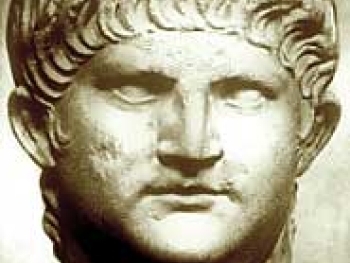
Who were the Main Historical Sources for the Life of Nero?
The main historical sources for the life of Nero were Tacitus Tacitus Publius Cornelius (55-120 A.D. approx.), Suetonius Svetonius Tranquillus (70-140 A.D. approx.), Cassius Dio Dion Cassius Cocceianus (155-235 A.D. approx.), Jewish and Christian Tra...
Who Were the Main Powers in Italy Before the Roman Empire?
The main powers in ancient Rome were Carthage, Greece, and Etrura. The Italian Peninsula is located right in the heart of the Mediterranean Sea. Rome is located right in the heart of Italy on a large plain known as Latium. Source: Latium and Geo...
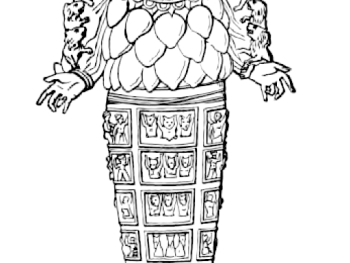
Why Did the Goddess Diana have so many Breasts?
In the Temple of Artemis also referred to as Diana the statue of the Roman goddess was depicted as covered entirely with breasts. This is because Diana was the goddess of fertility, and the multi-breasts were denoting fertility, nourishing the living...
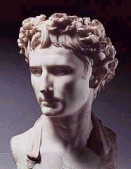
Why is Augustus Also Called Octavian?
Augustus was born with the name Gaius Octavian on September 23, 63 B.C. His parents were C. Octavius and Atia, a niece of Julius Caesar, by his sister Julia. Source: Augustus Caesar...
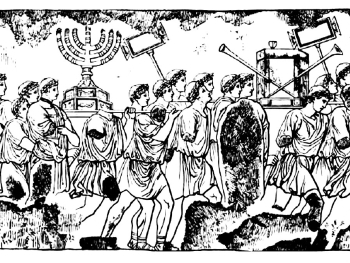
Why is the Arch of Titus Relief so Significant?
In 70 AD the Romans laid siege to Jerusalem and utterly destroyed and buried one of the greatest cities of the ancient world. This was all predicted by Jesus in the New Testament approximately 40 years prior. Source: Relief from the Arch of Titus ...
Why was Hadrian’s Arch Erected in Jordan?
Hadrian's Arch, also known as the Arch of Hadrian or the Triumphal Arch, is an ancient Roman monument located in Jerash, Jordan. It was erected during the reign of the Roman Emperor Hadrian in the 2nd century CE. While the Bible does not specifically...
About
Welcome to Free Bible: Unearthing the Past, Illuminating the Present! Step into a world where ancient history and biblical narratives intertwine, inviting you to explore the rich tapestry of human civilization.
Discover the captivating stories of forgotten empires, delve into the customs and cultures of our ancestors, and witness the remarkable findings unearthed by dedicated archaeologists.
Immerse yourself in a treasure trove of knowledge, where the past comes alive and illuminates our understanding of the present.
Join us on this extraordinary journey through time, where curiosity is rewarded and ancient mysteries await your exploration.
Recent posts
-

Understanding the Different Kinds of Charities and Their Impact
Charity has long stood at the intersection of compassion, community responsibility, and transformative social change. From the ancient temples of Mesopotamia to modern crowdfunding platforms, the act of giving has evolved but its purpose remains steady: to uplift the vulnerable, correct injustice, and foster a more humane society. In this... -

Prayers for Prophets: A Reflection on Reverence and Intercession
Prophets hold a revered status across many of the world’s major religions. As individuals chosen to convey divine messages, they are often remembered with deep respect, veneration, and love. One of the most profound ways believers express their connection to prophets is through prayers—supplications made for, to honor, or inspired... -

The Bible in Museums: Where to See Ancient Scripture Today
The Bible, as one of the most influential books in human history, has shaped not only religious beliefs but also the course of civilization. Its stories, teachings, and moral lessons have impacted art, literature, law, and culture for centuries. Today, while many people engage with the Bible through modern translations... -

Archaeologists Uncover Possible Oldest 3D Map, Dating Back 13,000 Years
A team of archaeologists has identified what may be the world’s oldest known three-dimensional map, according to a new study. The discovery was made at Ségognole 3, a prehistoric sandstone rock shelter located south of Paris, France. While the site has been known since the 1980s for its ancient engravings—including depictions... -

Archaeologists Discover 3,500-Year-Old Tomb of ‘Missing Pharaoh’ in Egypt
Burial Site of Thutmose II Hailed as the Most Significant Find Since Tutankhamun British archaeologist Piers Litherland had spent over a decade exploring the remote western wadis near Egypt’s Valley of the Kings when he made a breathtaking discovery—an ancient staircase leading to a long-lost royal tomb. What he and his...
Main Menu
- Ancient Assyrian Social Structure
- Ancient Babylonia
- Ancient Canaan During the Time of Joshua
- Ancient History Timeline
- Ancient Oil Lamps
- Antonia Fortress
- Archaeology of Ancient Assyria
- Assyria and Bible Prophecy
- Augustus Caesar
- Background Bible Study
- Bible
- Biblical Geography
- Fallen Empires - Archaeological Discoveries and the Bible
- First Century Jerusalem
- Glossary of Latin Words
- Herod Agrippa I
- Herod Antipas
- Herod the Great
- Herod's Temple
- High Priest's in New Testament Times
- Jewish Literature in New Testament Times
- Library collection
- Map of David's Kingdom
- Map of the Divided Kingdom - Israel and Judah
- Map of the Ministry of Jesus
- Matthew Henry Bible Commentary
- Messianic Prophecy
- Nero Caesar Emperor
- Online Bible Maps
- Paul's First Missionary Journey
- Paul's Second Missionary Journey
- Paul's Third Missionary Journey
- Pontius Pilate
- Questions About the Ancient World
- Tabernacle of Ancient Israel
- Tax Collectors in New Testament Times
- The Babylonian Captivity
- The Black Obelisk of Shalmaneser
- The Books of the New Testament
- The Court of the Gentiles
- The Court of the Women in the Temple
- The Destruction of Israel
- The Fall of Judah with Map
- The History Of Rome
- The Incredible Bible
- The Jewish Calendar in Ancient Hebrew History
- The Life of Jesus in Chronological Order
- The Life of Jesus in Harmony
- The Names of God
- The New Testament
- The Old Testament
- The Passion of the Christ
- The Pharisees
- The Sacred Year of Israel in New Testament Times
- The Samaritans
- The Scribes
Ancient Questions
- Was the Adriatic Sea a Place of Sudden Storms?
- What is significant about the Dead Sea?
- What were the major contributions of ancient Babylon to mathematics and astronomy?
- What is the Meaning of Jerusalem?
- What was a Watchtower?
- Why was Pompey Referred to as “The Great”?
- What is the Extent of the New Testament World?
- What were the religious beliefs and practices of the ancient Egyptians?
- What does the word Babylon mean?
- When did Jerusalem become the Capital of Israel?
Bible Study Questions
- Comparing the NRSV-CE and NRSVACE: Specific Differences, Historical Context, and Comparison with British Catholic Bible Translations
- The Revised Geneva Translation (RGT): Specific Aspects, Comparison to the King James Version, Impact on Bible Memorization, and Theological Distinctives
- The Worldwide English (New Testament) (WE): Historical Overview, Comparison to the ASV, Impact on Bible Study, and Public Domain Implications
- What is the Church?
- What is the biblical perspective on wealth and material possessions?
- Why Do Christians Celebrate Christmas?
- Exploring the Douay-Rheims Bible (DRA): Historical Aspects, Comparisons, and Influence
- How do we interpret and understand apocalyptic literature in the Bible?
- Exploring the Common English Bible (CEB): Translation Methodology, Church Use, and Comparative Analysis
- What does biblical archaeologist said about hieroglyphics?